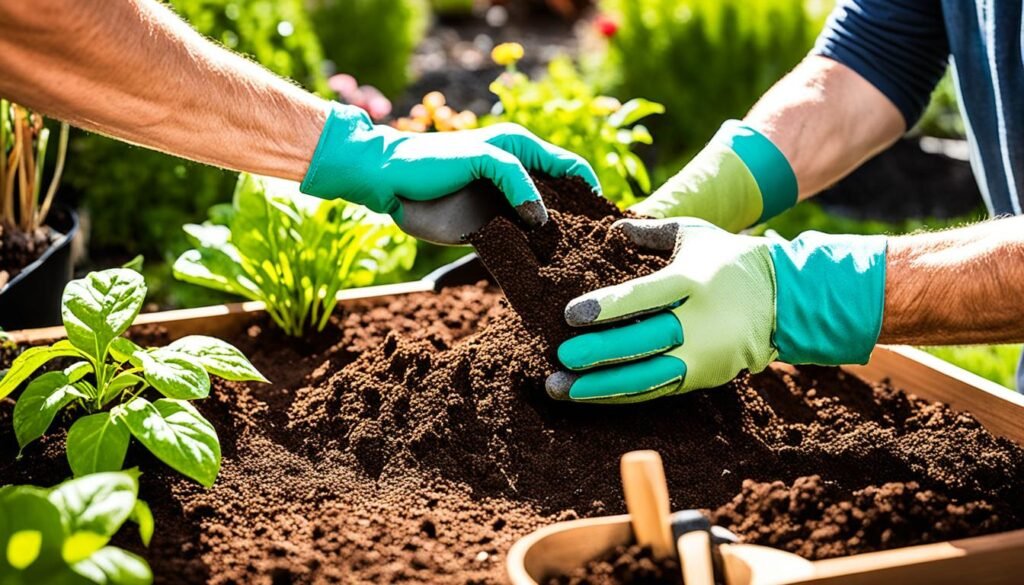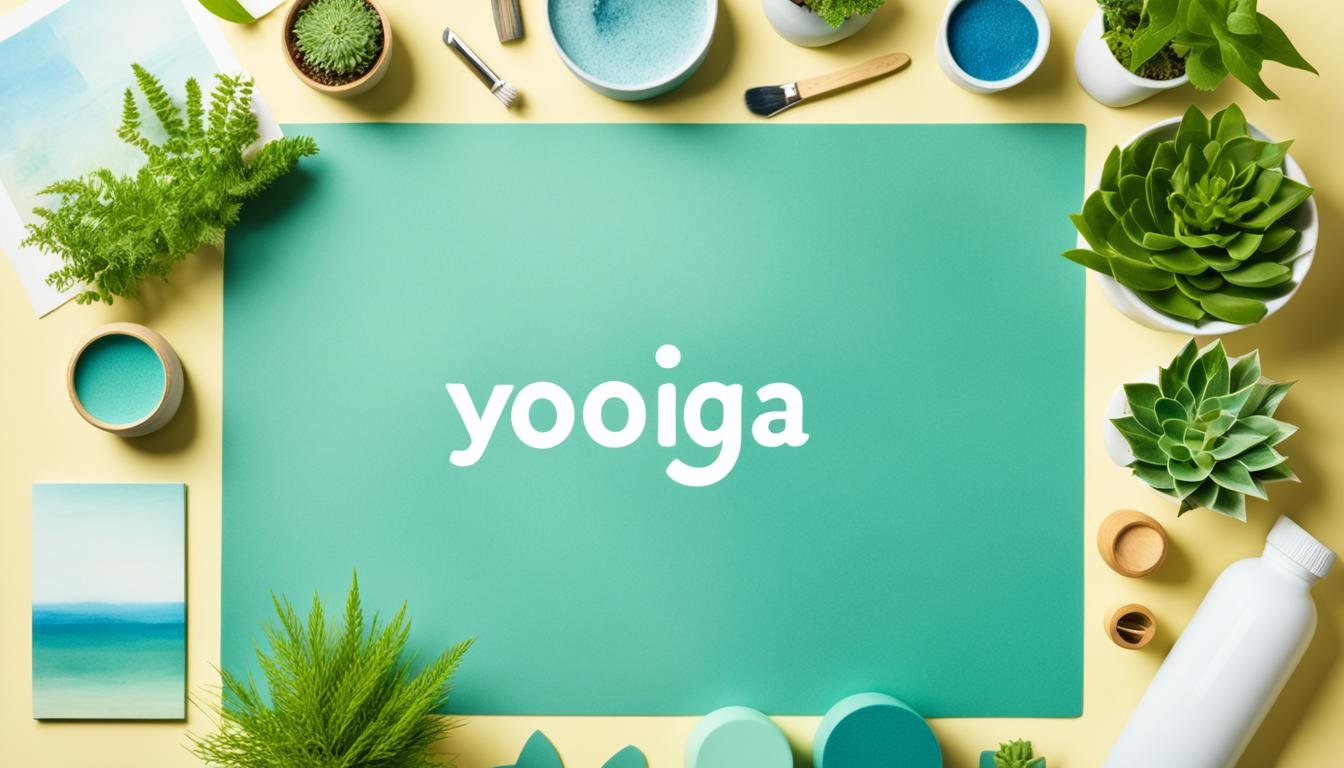Welcome to our guide on hobbies for mental health, where we explore various activities that can enhance your overall well-being. Taking care of our mental health is just as important as taking care of our physical health, and engaging in self-care hobbies is a great way to do that. In this article, we will delve into ten different hobbies that have been shown to have a positive impact on mental health.
Life can be hectic, and it’s essential to find activities that allow us to relax and recharge. These hobbies for mental health provide an outlet for stress, promote relaxation, and help us develop new coping mechanisms. Whether you’re looking for mental health activities to incorporate into your daily routine or you want to explore new self-care hobbies, you’ll find something valuable in these suggestions.
We all have unique interests and preferences, so we’ve curated a diverse range of self-care hobbies that cater to a variety of individuals. From creative outlets like painting to physical activities like yoga, there’s something for everyone. Let’s dive into each hobby and discover how it can boost your mental well-being.
Journaling: Unlocking Inner Reflection and Clarity
When it comes to therapeutic hobbies that can enhance your mental wellbeing, journaling takes center stage. This powerful practice combines the benefits of self-reflection with the calming act of writing, offering a unique outlet for self-expression and introspection.
Journaling has long been recognized as a valuable tool for managing stress, anxiety, and various mental health challenges. By putting pen to paper, we can unlock our innermost thoughts and emotions, providing a sense of release and clarity.
Whether you’re scribbling your thoughts in a personal diary, jotting down gratitude lists, or exploring your creative side through poetry or storytelling, journaling can be adapted to suit your specific needs and preferences.
One of the therapeutic aspects of journaling is that it offers a safe space for introspection. Through the act of writing, we can explore our feelings and experiences, gain a deeper understanding of ourselves, and find new perspectives on life’s challenges. This process of self-reflection can bring about personal growth and emotional healing.
“Journaling allows you to create a tangible record of your thoughts and emotions, helping you gain insights, identify patterns, and find clarity in the midst of chaos”
Not only does journaling provide an outlet for self-expression, but it also serves as a coping mechanism during difficult times. When faced with stress, anxiety, or overwhelming emotions, writing can be a therapeutic release, enabling us to process and manage our feelings.
Furthermore, journaling can help develop a sense of empowerment and control. By documenting our fears, challenges, and triumphs, we can track our progress and recognize our strengths. This sense of agency can contribute to improved mental wellbeing and confidence in facing life’s ups and downs.
Types of Journaling for Mental Wellbeing
There are various journaling techniques and formats that cater to different needs and goals. Here are a few types of journaling you can explore:
- Gratitude Journaling: Write down things you are grateful for each day to cultivate a positive mindset.
- Stream-of-Consciousness Journaling: Let your thoughts flow freely onto the page without judgment or structure.
- Bullet Journaling: Combine lists, calendars, and creative elements to organize your life and reflect on your achievements.
- Emotional Journaling: Focus on processing and exploring your emotions, allowing yourself to feel and express without inhibition.
Remember, there’s no right or wrong way to journal. It’s a personal journey guided by your unique experiences and needs. Experiment with different techniques and find what resonates with you.

Journaling can unlock the potential for self-discovery, self-compassion, and enhanced mental wellbeing. Take some time each day to put your thoughts on paper, and embrace the therapeutic power of writing.
| Benefits of Journaling for Mental Wellbeing |
|---|
| Promotes self-reflection and introspection |
| Aids in managing stress, anxiety, and mental health challenges |
| Provides a healthy outlet for emotional expression |
| Facilitates personal growth and healing |
| Builds resilience and coping skills |
Gardening: Cultivating Calm in Nature’s Embrace
When it comes to finding relaxation pastimes that nourish the mind and bring peace to our busy lives, few hobbies can rival the tranquil beauty of gardening. Tending to plants not only fills our surroundings with vibrant colors and pleasant scents but also offers a unique avenue for mindfulness and stress relief.
Just imagine:
Surrounded by the lush greenery of your backyard, you gently dig your hands into the soil, feeling its rich texture between your fingers. As you carefully plant seeds or tend to delicate flower buds, your mind drifts away from the worries and pressures of the day, gradually entering a state of serene calmness. The rhythmic motions and connection to nature provide a soothing escape from the hustle and bustle of everyday life.
Gardening is not just about creating a vibrant and picturesque outdoor space; it’s a profound way to connect with the natural world and find solace in its rhythms. As you engage in this mindful hobby, you become attuned to the subtle changes around you, noticing the delicate unfurling of leaves, the gentle sway of branches in the breeze, and the melodious song of birds perched nearby.
Research suggests that gardening can have a variety of mental health benefits. Here are a few ways this rewarding pastime can cultivate calm and bring peace to your life:
Mindfulness in the Moment
When you engage in gardening, you enter a state of focused attention, fully present in the moment. As you nurture your plants, you pay close attention to their needs, observing their growth, and providing the care they require. This intentional focus on the present moment is a cornerstone of mindfulness, helping to quiet the mind and relieve stress.
Sensory Stimulation
Gardening is a multisensory experience that engages all your senses. From the sight of vibrant flowers and lush foliage to the smell of fragrant herbs and the feel of soil between your fingers, every aspect of gardening stimulates your senses, grounding you in the present and fostering a sense of calm and relaxation.
A Sense of Achievement
Watching your plants thrive and blossom can provide a deep sense of fulfillment and satisfaction. Gardening offers a tangible way to witness the fruits of your labor and take pride in your accomplishments. These small victories can boost your self-esteem and contribute to overall mental wellbeing.
So why not immerse yourself in the soothing embrace of nature and discover the joys of gardening?

Whether you have a sprawling garden or a small windowsill, there are endless possibilities to explore when it comes to gardening. Start with a few potted plants or embark on a grand landscaping project—it’s up to you! The important thing is to embrace this mindfulness hobby and let it guide you toward relaxation and stress relief.
Next in our series, we’ll delve into the world of painting and how it can unleash your creativity for emotional expression.
Painting: Unleashing Creativity for Emotional Expression
When it comes to mental health activities, painting stands out as a powerful tool for self-expression and emotional release. Whether you’re an experienced artist or a beginner picking up a paintbrush for the first time, this therapeutic hobby can offer numerous benefits for your overall mental wellbeing.
Engaging in painting allows us to tap into our creativity and explore our innermost thoughts and emotions. It provides a safe space for self-expression and encourages us to let go of stress and anxiety through the act of creating something beautiful.
Recreational therapy, which includes painting as one of its key components, has been proven to have a positive impact on mental health. The process of painting allows us to focus on the present moment, promoting mindfulness and reducing the overwhelming thoughts that can often cloud our minds.
Through painting, we have the freedom to express our emotions without the need for words. It can be a cathartic release for pent-up feelings, offering a sense of relief and clarity. By visually representing our emotions on canvas, we can gain a deeper understanding of ourselves and our inner world.
Moreover, painting can serve as a form of distraction from negative or intrusive thoughts. When we immerse ourselves in the creative process, we shift our focus away from our worries and enter a state of flow, where time seems to pass effortlessly. This can provide a much-needed break from the demands of daily life and offer a sense of peace and calm.
Painting is a journey of self-discovery, where we can explore our innermost thoughts and emotions without judgment. It grants us the freedom to express ourselves in ways that words often cannot.
To get started with painting, you don’t need any prior artistic experience or expensive materials. Simple watercolors, acrylic paints, or even coloring pencils can be enough to unleash your creativity. Find a quiet and comfortable space where you can set up your art supplies and allow yourself to be fully present in the moment.
To enhance your painting experience, consider experimenting with different techniques, colors, and styles. Let your imagination guide you and don’t worry about the end result. The process itself is what matters, as it offers an opportunity for self-discovery, relaxation, and personal growth.
So why not pick up a paintbrush and let your emotions flow onto the canvas? Your mind will thank you for it.
Benefits of Painting for Mental Health
| Benefits | Description |
|---|---|
| Emotional expression | Provides a creative outlet for expressing and processing emotions. |
| Anxiety reduction | Helps to alleviate stress and anxiety through the meditative act of painting. |
| Mindfulness | Promotes present-moment awareness and a sense of calm and focus. |
| Self-discovery | Allows for introspection and gaining insight into one’s thoughts and feelings. |
| Relaxation | Offers a soothing and enjoyable activity that can reduce tension and promote relaxation. |

Painting: a canvas for emotional expression, a pathway to self-discovery, and a means to enhance your overall mental health and wellbeing.
Yoga: Balancing Mind, Body, and Spirit
In our quest for mental wellbeing, it’s essential to find activities that promote relaxation, mindfulness, and stress relief. One such practice that offers a multitude of benefits is yoga. The combination of physical postures, breath control, and meditation creates a powerful tool for achieving balance in our lives. Let’s delve into how incorporating yoga into our routine can enhance our mental wellbeing.
Improved Flexibility and Strength
When we engage in yoga, we move our bodies in various poses (asanas) that stretch and strengthen our muscles. Regular practice improves flexibility, making it easier to perform daily tasks and reducing the risk of injury. Additionally, holding poses requires strength, which is gradually developed over time. The physical benefits of yoga translate into enhanced overall fitness, positively impacting our mental state.
Reduced Stress and Anxiety
“Yoga is the journey of the self, through the self, to the self.”
— Bhagavad Gita
Yoga has long been recognized for its ability to calm the mind and reduce stress. The combination of deep breathing exercises and mindful movement helps activate the parasympathetic nervous system, which promotes relaxation and counters the fight-or-flight response. By shifting our focus to the present moment through yoga, we can alleviate anxiety and cultivate a sense of inner peace.
Enhanced Mindfulness
Practicing yoga encourages us to be fully present in our bodies and minds. As we flow through each pose, we become aware of our breath, sensations, and thoughts. This heightened sense of mindfulness carries over into our daily lives, allowing us to better manage stressors and maintain a sense of calm amidst chaos. The mindfulness cultivated through yoga helps us develop a deeper connection with ourselves and the world around us.
Exploring Different Yoga Styles
Yoga offers a wide range of styles to suit individual preferences and needs. From gentle Hatha yoga to challenging Ashtanga yoga, there is a practice for everyone. Here are a few popular styles:
- Hatha Yoga: Focuses on postures and breath control, making it suitable for beginners.
- Vinyasa Yoga: Combines flowing movements with breath synchronization, promoting a dynamic and energizing practice.
- Restorative Yoga: Emphasizes relaxation and deep stretching, perfect for those seeking rejuvenation and stress relief.
| Yoga Style | Description |
|---|---|
| Hatha Yoga | Focuses on postures and breath control, suitable for beginners. |
| Vinyasa Yoga | Combines flowing movements with breath synchronization for a dynamic practice |
| Restorative Yoga | Emphasizes relaxation and deep stretching, ideal for rejuvenation and stress relief. |
By exploring different yoga styles, we can find the one that resonates with us and aligns with our mental wellbeing goals.
Yoga provides a holistic approach to mental wellbeing, nurturing the mind, body, and spirit. Whether you’re a beginner or an experienced yogi, incorporating this practice into your routine can offer remarkable benefits. Join us in the next section as we dive into the world of reading and its positive impact on mental wellbeing.
Reading: Escaping into the Pages of Mental Wellbeing
When it comes to therapeutic hobbies, reading is a timeless pastime that offers a myriad of benefits for our mental health. It allows us to escape the stresses of everyday life, engage our imagination, and find solace in the pages of a good book.
Exploring the world of literature can be a truly transformative experience. Whether we delve into fiction or non-fiction, each book holds the power to transport us to new places, introduce us to diverse characters, and offer valuable insights into the human experience.
Reading acts as a form of relaxation, taking us away from our daily worries and immersing us in captivating stories. It enables us to forget about our troubles for a while and find comfort and solace within the pages we turn.
Escaping into Another World
“A reader lives a thousand lives before he dies. The man who never reads lives only one.” – George R.R. Martin
Reading allows us to escape into another world, one where we can experience the lives of different characters, the excitement of new adventures, and the depth of emotions. It opens our minds and broadens our perspectives, taking us on journeys that are both thrilling and enlightening.
Whether it’s getting lost in a gripping mystery, indulging in a heartwarming romance, or exploring faraway lands, reading provides an escape that revitalizes our minds and rejuvenates our spirits.
The Power of Emotional Connection
Books have an incredible ability to elicit emotions within us. They can make us laugh, cry, feel inspired, or provoke deep introspection. This emotional connection created through reading allows us to better understand ourselves and others.
Through the power of storytelling, books have the capacity to touch our hearts, resonate with our own experiences, and offer a sense of shared humanity. They can be a source of comfort during difficult times and a reminder that we are not alone in our struggles.
Moreover, reading can sharpen our empathy by exposing us to diverse perspectives and challenging us to see the world through the eyes of others.
The Mindful Journey of Reading
Engaging in a good book requires focus and concentration, which in turn fosters mindfulness. As we immerse ourselves in the words on the page, our minds naturally enter a state of tranquility, providing a much-needed respite from the constant buzz of the digital age.
By slowing down and immersing ourselves in the act of reading, we can find solace and inner calm. It allows us to disconnect from the fast-paced world around us and enter a peaceful mental space.
The therapeutic and relaxing nature of reading makes it an ideal hobby for promoting mental wellbeing. Whether it’s a few minutes before bed or a leisurely afternoon spent in a cozy nook with a cup of tea, we can always find time to escape into the pages of a good book.
So, grab your favorite novel, find a comfortable spot, and embark on a journey of self-discovery, relaxation, and mental rejuvenation through the power of reading.
Cooking: Nourishing Your Mind and Body
Delve into the culinary arts and understand how cooking can be a meditative and enjoyable hobby that nourishes not just your body but also your mental wellbeing. There’s something truly therapeutic about creating delicious meals from scratch, using fresh ingredients and exploring different flavors. Whether you’re a seasoned chef or a novice in the kitchen, cooking can be a fantastic way to destress, practice mindfulness, and indulge in self-care.
Cooking engages all your senses, from the vibrant colors and fragrant aromas to the sizzling sounds and mouthwatering tastes. It allows you to channel your creativity and focus on the present moment, as you measure ingredients, chop vegetables, and stir sauces. The repetitive actions and rhythm of cooking can be calming and soothing to the mind, providing a much-needed break from the stresses of everyday life.
Furthermore, preparing your meals at home allows you to have full control over the ingredients, ensuring that you nourish your body with wholesome and nutritious food. By embracing cooking as a hobby, you can explore new recipes, experiment with flavors, and discover the joy of making meals from scratch. Not only will you develop new culinary skills, but you’ll also have the satisfaction of creating dishes that satisfy both your taste buds and your mental wellbeing.
“Cooking is like love. It should be entered into with abandon or not at all.” – Harriet Van Horne
To help you get started, here’s a list of mental health activities in cooking that you can try:
- Explore different cuisines from around the world
- Experiment with new ingredients and flavors
- Engage in mindful meal preparation, focusing on the present moment
- Host a themed cooking night with friends or family
- Create a weekly meal plan to bring structure and organization to your cooking routine
- Try your hand at baking and decorate cakes or cookies
- Attend cooking classes or workshops to expand your culinary skills
- Start a recipe journal and document your cooking adventures
- Share your creations with others and host a dinner party
- Grow your own herbs or vegetables and use them in your recipes
| Mental Health Benefits of Cooking as a Hobby | Keyword |
|---|---|
| Relieves stress and promotes relaxation | relaxation pastimes |
| Boosts creativity and self-expression | self-care hobbies |
| Fosters mindfulness and increases personal awareness | mental health activities |
| Promotes a healthy and balanced diet | mental health activities |
| Provides a sense of accomplishment and satisfaction | self-care hobbies |
So, put on your apron, gather your favorite recipes, and embark on a culinary journey that not only fuels your body but also nourishes your mind. Cooking is more than just preparing meals – it’s an art form that can bring joy, relaxation, and a sense of fulfillment to your life.
Meditation: Cultivating Inner Peace and Clarity
When it comes to finding mindfulness hobbies, meditation is a powerful practice that can bring a sense of inner peace and clarity to your daily life. With its origins rooted in ancient traditions, meditation has become increasingly popular as a coping hobby in our modern, fast-paced world.
Through the simple act of sitting quietly and focusing your attention, meditation allows you to calm your mind and reduce stress. It helps you cultivate self-awareness and gain a deeper understanding of your thoughts and emotions. By consistently practicing meditation, you develop the ability to approach challenges and difficulties with a greater sense of calm and resilience.
Engaging in meditation as a stress relief hobby not only benefits your mental wellbeing but also has a positive impact on your physical health. Research shows that regular meditation can lower blood pressure, improve sleep quality, and boost the immune system. It enables you to create a sacred space for yourself, a time where you can let go of worries and distractions, and reconnect with your inner self.
Whether you prefer guided meditation apps or silent meditation in a peaceful environment, incorporating meditation into your daily routine can have profound effects on your overall wellbeing. Give yourself permission to slow down, breathe deeply, and embrace the transformative powers of meditation as you cultivate inner peace and clarity.





